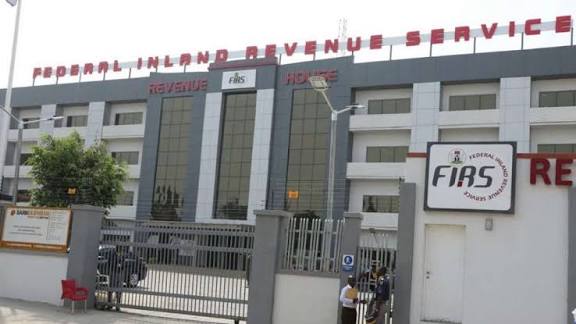Featured
Explainer: A Comprehensive Framework of the Tax ID

By Arabinrin Aderonke
In recent debates about Nigeria’s tax reforms, a widespread misconception has taken root: that citizens without a Tax Identification Number (TIN) cannot own or operate a bank account. This view, while popular in some quarters, is inaccurate.
The reality is that Nigeria’s tax system has evolved to integrate seamlessly with existing national registries, ensuring that every eligible individual or entity is automatically identifiable for tax purposes.
This article clarifies how the new framework works, drawing from the Federal Inland Revenue Service’s (FIRS) implementation of the National Taxpayer Directory under the Nigeria Tax Administration Act (2025).
What is a Tax ID?
The Tax Identification Number (TIN) is a 13-digit unique identifier for all taxable persons and entities in Nigeria. It encodes details such as issuance year, registry source (NIN for individuals, RC for corporates), state of registration, and a cryptographic fragment for security, ending with a check digit.
The TIN is not a standalone requirement imposed on citizens. Instead, it is a statutory tool that ensures every taxpayer, whether an individual, a registered business, or an association, can be uniquely verified within the national tax system.
Tax ID and the National Identity Management Commission, NIMC: For individuals, the TIN is automatically linked to their National Identification Number (NIN) issued by the National Identity Management Commission (NIMC).
When an individual provides their NIN, such as during bank account opening or Know Your Customer (KYC) processes, the system cross-checks the NIN in the national database. As part of this verification, the TIN is automatically retrieved and attached to the person’s records.
This means citizens do not need to manually apply for or present a tax ID before opening a bank account. The system handles the integration in real time.
Tax ID and the Corporate Affairs Commission, CAC: For businesses, the TIN is tied directly to the RC Number issued by the Corporate Affairs Commission (CAC). Likewise, for cooperatives, partnerships, professional bodies, and other legal entities, the TIN is connected to their respective recognised registries.
This linkage ensures that corporate entities can be transparently identified for both tax and compliance purposes. Just as with individuals, banks and regulators do not require extra documentation beyond the foundational registry numbers to confirm tax status.
Exploring the Benefits of Tax ID: Seamless Banking Access: Individuals and businesses can open and operate bank accounts using their NIN or RC Number, with the TIN automatically integrated behind the scenes
Fraud Reduction: The system eliminates duplicate or false identities by ensuring every taxpayer is tied to a verifiable registry.
Regulatory Compliance: Banks and financial institutions can rely on a single, consent-driven source of truth for onboarding, reporting, and KYC compliance.
Inclusivity: Beyond companies, the framework extends coverage to associations, professional bodies, and trustees.
Global Compatibility: Nigeria’s tax system can securely interact with international systems for trade, finance, and compliance.
The misconception that Nigerians can not own or operate a bank account without a tax ID overlooks the integrated design of the new TIN system. By linking TINs to existing foundational identifiers such as the NIN and RC Number, the system ensures automatic compliance without creating unnecessary barriers for citizens.
In practice, this means a Nigerian walking into a bank with their NIN is already tax-compliant. The bank simply retrieves their TIN as part of its onboarding process. Far from being a hurdle, the TIN framework is a gateway to financial inclusion, regulatory transparency, and global interoperability in Nigeria’s evolving digital economy.
Arabinrin Aderonke Atoyebi is the technical assistant on broadcast media to the executive chairman of the Federal Inland Revenue Service.
Featured
CELEBRATING A CENTURY-OLD CIVIL AVIATION SECTOR TRAJECTORY IN NIGERIA

This week, millions of Nigerians and others across the globe will join the Ministry of Aviation and Space Development under the irrepressible leadership of the Honourable Minister, Festus Keyamo(SAN),and all the notable Aviation sector stakeholders in and outside the country,in celebrating a century of Nigeria’s civil aviation history.
There is no doubt that under the present leadership of the Honourable Minister and within the short spell of time in his stewardship,he has consciously and intentionally embarked on a “silent revolution” for the industry with very veritable and laudable landmarks that have consistently grown the industry.
Some of these spirited efforts for instance have consequently led to trust restoration amongst international lessors, financier,any global partners.Of note also is assidiously working for the full domestication and implementation of the “Cape Town Convention Agreement” ,which gives Airlines access to modern fleets of competitive rates as well as enforcement of IDERA(Irrevocable Deregulation and Export Request Authorization).
Having well applauded these vital contemporary initiatives,it will also be germane to cast our minds in retrospect by taking a peep into our history over several decades to recognise some of the notable forebears in the industry whose impressionabl efforts cannot be overlooked,as they took the impetuous initiatives of breaking the ice at the nascent stage.
It will aptly corroborate the truism which says that… ” a journey of a thousand miles starts with one step”.
The above is vividly captured from a tribute by the First Republic Minister of Aviation Chief Mbazulike Amaechi at the funeral of late Igwe of Oba,HRH Peter Ezenwa(MFR) in 2018.
It states inter alia…”One significant thing I will say many people didn’t know is that the first indigenous airline that was to run in Nigeria was known as “STANDARD AIRLINE”.It was founded in 1966 by a company formed by Igwe Peter Ezenwa from Oba,and had on board,John Nwankwu from Abagana,Edward Ebo from Ezinifitte,(all from Anambra state),John Anyaehie from Nkwerre in Imo state,and lastly my very self Mbazulike Amaechi.
The five of us later acquired two brand new aircrafts,and had four pilots,namely;Unachievable,John Emma Ngwu and Felix Offor,who was to be the General Manager of the airline.
But just about the time for the take-off the crisis of the military takeover erupted in the North as the planes were on their way for delivery to us.In fact the bank handling the transaction was to allow the planes to be flown from the USA,but the news of the war broke out in 1967,the insurance company cabled for the cancellation of the deal as they will not be able to cover the risk cost of aircrafts being flown into war zone.
So,we asked the manufacturers to take the two aircrafts back to their country and hold on for six months with the hope of that the war will end within the requested time frame,but the war didn’t end as thought.We consequently asked for refund and they deducted some money and refunded the balance which was deposited at the London branch of African Continental Bank(ACB).
When the government took over the operations of ACB,we still hoped for the refund but unfortunately were disappointed that the Federal government took over the whole money and we lost everything.”
Further in line with our historical perspective,it will also be pertinent some of the later years reformists in the likes of Engr Onyereri and Harold Demuren who advertently sponsored some far reaching regulations that eventually steered the industry towards greater autonomy with the passage of the 2005 Civil Aviation Act,which I was also a prime participant of in my capacity as an Aviation sub chair in then House of Representatives.
As we mark this great century milestone,and with the clear evidential pathway set out by the current managers of the industry under the indomitable leadership of Honourable Minister, I do not see the sky posing any limitations as they say,but rather availing new vistas of limitless growth opportunities.
CONGRATULATIONS.
Hon Chidi Nwogu
Former member House of Representatives & presently Governing Council member
,African Aviation and Aerospace University,Abuja.
-

 Featured6 years ago
Featured6 years agoLampard Names New Chelsea Manager
-

 Featured6 years ago
Featured6 years agoFG To Extends Lockdown In FCT, Lagos Ogun states For 7days
-

 Featured6 years ago
Featured6 years agoChildren Custody: Court Adjourns Mike Ezuruonye, Wife’s Case To April 7
-

 Featured6 years ago
Featured6 years agoNYSC Dismisses Report Of DG’s Plan To Islamize Benue Orientation Camp
-

 Featured4 years ago
Featured4 years agoTransfer Saga: How Mikel Obi Refused to compensate me After I Linked Him Worth $4m Deal In Kuwait SC – Okafor
-
Sports3 years ago
TINUBU LAMBAST DELE MOMODU
-

 News12 months ago
News12 months agoZulu to Super Eagles B team, President Tinubu is happy with you
-
Featured6 years ago
Board urges FG to establish one-stop rehabilitation centres in 6 geopolitical zones
